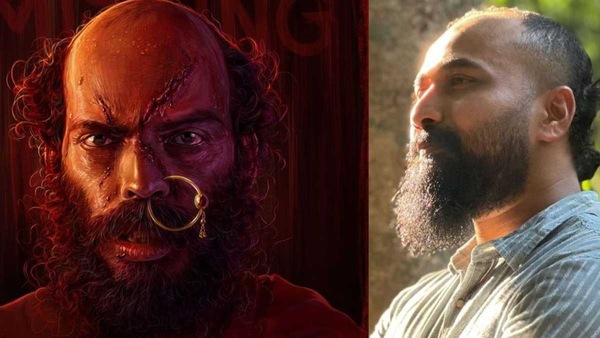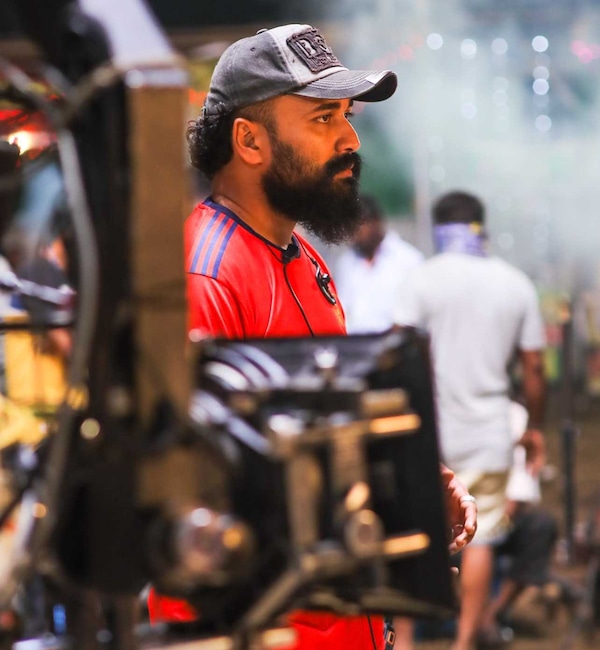Toby: The Raj B Shetty school of cinema helped me become a director, says Basil Chalakkal
Basil AL Chalakkal has been with Raj and his gang since 2015, starting with Ondu Motteya Kathe. They are now ready to present their next, Toby, which elevates Basil to the post of director

Last Updated: 01.18 PM, Jul 22, 2023
Ever since news broke that Raj B Shetty was doing another film after Swathi Mutthina Male Haniye, the assumption was that the actor-filmmaker was directing it. Turns out, this time around, that was not the case – Raj had limited himself to writer, producer and actor and handed over the responsibility of direction to his long-time associate, Basil AL Chalakkal. Suddenly, every time one heard something about the film – Toby – the name ‘Basil’ also came up, but the man himself was not seen or heard from that often. So, we decided to check in and find out more about the enigma that is Basil, the director of Toby.
When we called Basil, he was struggling with a persistent cough, but the mere mention of a conversation about his working relationship with Raj and the making of Toby got him excited enough to talk for more than an hour and a half. In this first part of our conversation with Basil, he tells us about how he met Raj B Shetty and became ‘one of the boys’, and what it takes to be a part of the Ondu Motteya filmmaker’s movies.

Being a part of Raj B Shetty’s ‘extended family’
I am from a small village in Kozhikode, Kerala, but went to Mangaluru to pursue Engineering. After I finished my course, though, like most fresh engineers, I was clueless about what to do next. But at the back of my mind, there was always this dream of doing something in cinema or a creative field and make an impact. There was always this obsession or fascination with cinema about how it had influenced or changed my way of thought. There was this idea, but I had no formal education of making cinema.
Then, through a friend, I got to know that some boys from Mangaluru were planning to do a short film, but since they had some money in hand, they were trying to make a movie out of it. I connected with them and then Ondu Motteya Kathe happened.
What worked for me is that during my college days, most of my friends were Kannadigas and I learnt Tulu from then and by the team I met Raj and his gang, I was almost as fluent in the language as a localite.
Ondu Motteya Kathe was a magical trip - there was a lot of passion and emotion as 25-odd boys who had absolutely no clue about movies, got together to make one. By the end of those 20-days, everybody found their second family there. Once I came out of my house and did my engineering, I lost my connections and roots and for the first time since then, I found a sense of belonging – I am a part of these people.
Since 2015, we’ve all been together and done 4-5 films, but more than the work relationship, in these eight years, all of us have grown to be more than just colleagues. Outside of cinema also, we spend most of our time together.
After Ondu Motteya Kathe, some of us went on to work with Rishab Shetty on Sarkari Hiriya Prathamika Shaale, and then I did Paddayi with director Abhay Simha. My next was a Malayalam film called Luca, on which I was an art assistant. All of us did the rounds of other film sets and then came back to do Garuda Gamana Vrishabha Vahana.
The Raj B Shetty university of cinema
If you ever visit a set that we work on, you can’t make out who’s who. There’s no particular chair for the director, or other department heads. It’s not like the sets that you see for bigger cinemas.
When we started with Ondu Motteya Kathe, there was not even one person who’d been on a film set before, including cinematographer Praveen Shriyan. We didn’t know the rules of a set; we just made a film. To give you an idea, in a normal set, if there is something that’s not supposed to be in the frame of a shot, the director just calls out for the art department to fix it. On our set, if there is a scenario like that, whoever is nearest to that item, which could be Raj or me, that person will go and remove it. The only consideration is who can do it easily or in the most effective manner. That is how things work on our sets – you can’t figure out the different departments. Yes, jobs are assigned to specific people, but it’s not only them who do it. On our sets, everyone does everything, nothing’s beneath you.
On the set of Sarkari Hiriya Prathamika Shaale, though, things were different and everything was compartmentalized with clear directions on who does what. Take for example, when you work for a big company with a lot of employees and infrastructure, you will do only what’s asked of you and you may or may not excel in it; you are just there. But if you work in a startup where everything is done under one roof and everybody works in one hall, you get into all the departments – that startup for me was Ondu Motteya Kathe. With that school in my head, that every job out there is something you can and should do, it was quite easy for me to go and work anywhere else. It also helped me in a lot of ways to develop the mentality of a director.
In the second and final part of the interview with Basil AL Chalakkal, he speaks about all things Toby. Stay tuned.

 Premium
Premium